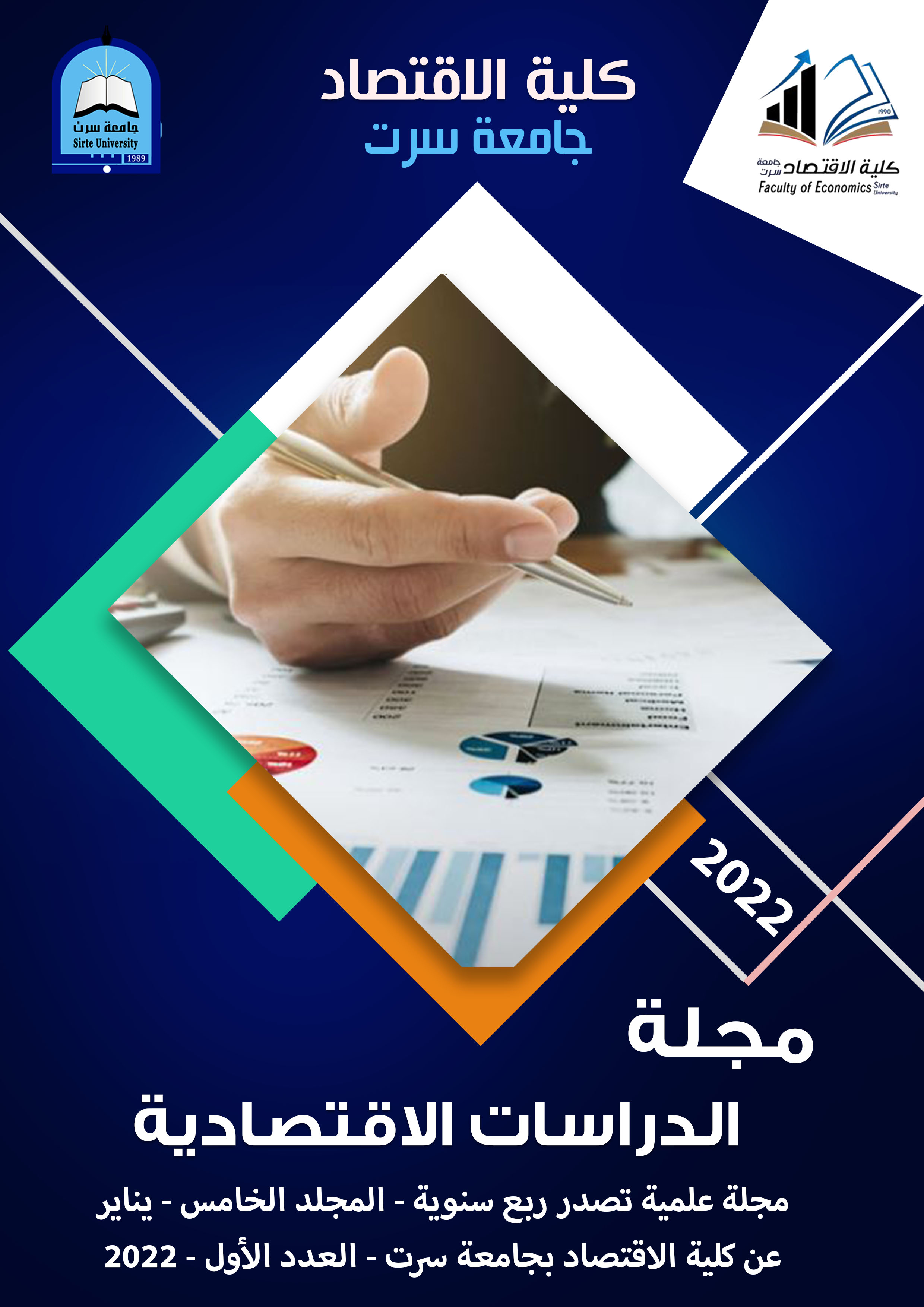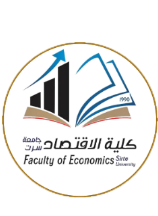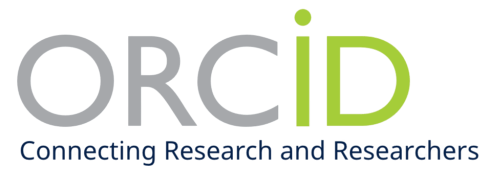أثر رأس المال النفسي على تعزيز السلوك الابداعي للعاملين دراسة ميدانية على الموظفين الاداريين العاملين بشركات الاتصالات الليبية العاملة بمدينة بنغازي
DOI:
https://doi.org/10.37375/esj.v5i1.192Keywords:
psychological capital, creative behavior, telecommunications companiesAbstract
The study aimed to identify the impact of psychological capital on enhancing the creative behavior of workers in telecommunications companies operating in the city of Benghazi through the opinions of its administrative staff The researcher designed a questionnaire that included (35) items to collect primary data from the study sample, which consisted of (133). The descriptive analytical approach was used with (SPSS) in order to derive the results, the most important: There is a significant effect of psychological capital on enhancing the creative behavior and from the point of view of the administrative staff.
The most important of recommendations, Strengthening levels of psychological capital and maintaining a high positive psychology for employees by developing mechanisms to retain them and address any problems that weaken their level of optimism and always strive to provide an appropriate climate that supports the creative behaviors of employees..
References
• . إبراهیم، منى محمد السید، ( 2010 )، نموذج مقترح لبعض مسببات ونتائج رأس المال النفسي بالتطبیق على المستشفیات والمراكز الطبیة بجامعة المنصورة، مجلة التجارة والتمویل، جامعة طنطا، العدد( 2)، ص ص 133-172 .
• بوضياف , نوال (2016) . " تقديرات رؤساء أقسام الجامعات الجزائرية لمعوقات تفعيل دور الاقتصاد المعرفي في تطوير أداء الجامعات " , مجلة جرش للبحوث والدراسات , مجلد 17 , العدد 1 , ص ص: 647 – 668 .
• زقاوة , أحمد (2016). " دور التعلم العالي في تأهيل الطلاب لبناء مشروعهم المهني ", ابحاث المؤتمر العلمي التاسع التعلم العالي وتنمية المجتمع , كلية العلوم , جامعة جرش , ص ص: 83 – 110 .
• السالم، مؤيد،( 1999) ، العلاقة بين أبعاد تصميم العمل والسلوك الإبداعي للعاملين: دراسة ميدانية في منشأة صناعية عراقية، دراسات، المجلد 26 ، العدد 1، ص 98-113.
• سباعى، هشام (2018): اثر راس المال النفسي على الالتزام التنظيمي، دراسة حالة على موظفي مديرية الادارة المحلية لولاية تلمسان، رسالة ماجستير، المركز الجامعة بلحاج بوشعيب،معهد العلوم الاقتصادية والتجارية.
• سمايلي، محمود وعمارة، سعيدة (2117 .) البعد الاستراتيجي لتنمية و ادارة الموارد البشرية في ظل تحديات العولمة، مجلة اقتصاد المال والأعمال، 1(3 ،) 166-181.
• العتيبي، سعد بن مرزوق (2021): دور رأس المال النفسي كمتغير وسيط في العلاقة بين أثر القيادة الاصيلة في الاندماج في العمل للموظفين في شركات القطاع الخاص في المملكة العربية السعودية، مجلة الدراسات الاسلامية للدراسات الاقتصادية والاجتماعية، العدد 29، العدد 3، ص ص 60-81.
• العولقي، عبدالله احمد (2019): أثر القیادة الجدیرة بالثقة في تنمیة سلوك العمل الإبداعي – رأس المال النفسي كمتغیر وسیط: بالتطبیق على المؤسسة العامة للاتصالات الیمنیة، مجلة إقتصاد المال والأعمال JFBE ، المجلد (3)، العدد(3)، ص ص 221-263.
• الكرداوي، مصطفي محمد(2013)، أثر الانطمار الوظيفي في العلاقة بين رأس المال النفسي ومستوى الشعور بالاحتقان التنظيمي لدى العاملين بالقطاع الحكومي في محافظة الدقهلية، مجلة الإدارة العامة، معهد الإدارة العامة بالرياض، م 53 ،ع 3، ص ص 1-55.
• Caza, et al., "Psychological capital and authentic leadership", Asia-Pacific journal of business administration, (2010), Vol. 2, No. 1, p. 54.
• Ahmad, I., Zafar, M. A., & Shahzad, K. (2015). Authentic leadership style and academia’s creativity in higher education institutions: Intrinsic motivation and mood as mediators. Transylvanian Review of Administrative Sciences, 11(46), 5-19.
• Amabile, T. M., Barsage, S. G., Mueller, J. S., & Staw, B. M. (2005).Affect and creativity at work. Administrative Science Quarterly,50, 367-374.
• Avey, J. M., Luthans, F., & Jensen, S. M. (2009). Psychological capital:A positive resource for combating employee stress and turnover. Human Resource Management, 48, 677-693.
• Baron, R. A., Franklin, R. J., & Hmieleski, K. M. (2016). Why entrepreneurs often experience low, not high, levels of stress: The joint effects of selection and psychological capital. Journal of management, 42(3), 742-768
• Hobfoll, E. (2002). Social and psychological resources and adaptation. Review of General Psychology, 6(4), 307-308.
• JENSEN, SUSAN M, , AND JAMES B. AVEY, FRED LUTHANS(2009), PSYCHOLOGICAL CAPITAL:A POSITIVE RESOURCE FORCOMBATING EMPLOYEE STRESS AND TURNOVER, Human Resource Management, , Vol. 48, No. 5, Pp. 677– 693.
• Luthans, F. &Youssef, C.M. (2007).Emerging positive organizational behavior. Leadership institute faculty publications. Journal of management,33,(3)321-349
• Luthans, F., Avolio, B. J., Avey, J. B., & Norman, S. M. (2007). Positive psychological capital: Measurement and relationship with performance and satisfaction. Personnel psychology, 60(3), 541-572.
• Masten, A. S. and Reed, M. G. J. (2002). Resilience in development. In C. R. Snyder, & S. Lopez (Eds.), Handbook of positive psychology (pp. 74–88). Oxford, U.K.: Oxford University Press.
• Nafei, W. (2015). Meta-analysis of the impact of psychological capital on quality of work life and organizational citizenship behavior: A study on Sadat City University. International Journal of Business Administration, 6(2), 42-59.
• Sameer, Y. M. (2018). Innovative behavior and psychological capital: does positivity make any difference?. Journal of Economics & Management, 32, 75-101
• Schuckert, M., Kim, T. T., Paek, S., & Lee, G. (2018). Motivate to innovate: How authentic and transformational leaders influence employees’ psychological capital and service innovation behavior. International Journal of Contemporary Hospitality Management, 30(2), 776-
• Sekaran, U., and Bougie, R.(2010).Research Methods for Business: A Skill Building approach, (5th ed.), Wiley and Sons. ISBN
• Seligman, M. E. P. (2006). Learned optimism. How to change your mind and yourNew York, NY: Vintage Books.
• Seligman, M. E. P., Steen, T. A., Park, N., & Peterson, C. (2005). Positive psychology progress: Empirical validation of interventions. American Psychologist, 60, 410-421.
• Stajkovic, A. D., & Luthans, F. (1998b). Social cognitive theory and self-efficacy: Going beyond traditional motivational and behavioral approaches. Organizational Dynamics,26(4), 63-74.
• Tierney, P., & Farmer, S. M. (2002). Creative self-efficacy: Its potential antecedents and relationship to creative performance. Academy of Management Journal, 45, 1137- 1148.
• Valaei, N., and Jiroudi, S., (2016). Job satisfaction and job performance in the media industry A synergistic application of partial least squares path modelling. Asia Pacific Journal of Marketing and Logistics. 28, NO5.
• Ziyae, B., Mobaraki, M. H., & Saeediyoun, M. (2015). The effect of psychological capital on innovation in information technology. Journal of Global Entrepreneurship Research, 5(1), 1-12.
• Zubair, A. & Kamal, A. (2015). Authentic leadership and creativity: Mediating role of work-related flow and psychological capital. Journal of Behavioural Sciences, 25(1), 150-171.
• Zubair, A., & Kamal, A. (2017). Perceived Authentic Leadership, Psychological Capital,and Creative Work Behavior in Bank Employees. Pakistan Journal of Psychological Research, 32(1),35-53.




































